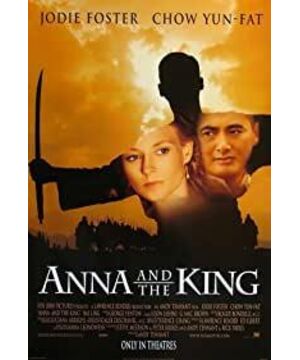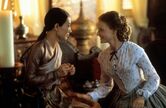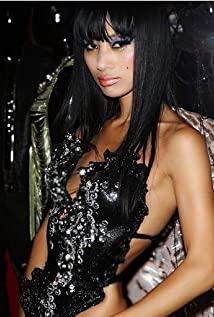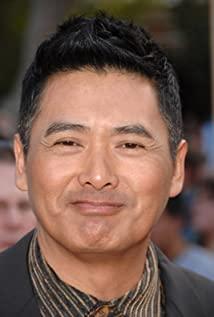"Anna and the King" is a historical romance film directed by Andy Tennant and starring Judy Foster and Chow Yun-fat. Based on historical events, the film tells the famous love story between the widowed British female teacher Anna Leonowen and the King of Siam in the 1860s. The movie was released in December 1999, and it feels like it was a few days ago, as everyone knows that it has been nearly 20 years since then.
Why watch this movie? One is because I was studying on WeChat. Some time ago, I just saw the book "Reading is the Most Romantic Education" by Mr. Li Weiwen from Taiwan. It mentioned that AB Bao watched this movie, which aroused my interest; the second is Because seeing ancient countries such as Siam reminds me of Raiders of the Lost Ark, I kind of wanted to see the customs of this ancient Asian country, so I found time to take a look.
After reading it, I found that I did not have the great feelings I expected. It may be because there is actually no passionate love in it, and it is more subtle; there are no high-tech stunts and thrilling plots. Qibing is not in the same suit; the overall effect is relatively plain, but there are flesh and blood. Sometimes politics and the country have the love of men and women, parental love, humorous and serious; my score of 10 points is 6.5 points, which is not successful. But yes.
The scene that impressed me the most in the movie was that when Anna first gave lessons to dozens of princes and princesses, Anna’s son and the eldest prince had a fight in the class, Anna punished them to stay in class and write a hundred words, and Anna son finished it obediently. But the prince refused to be punished. He folded his hands on his chest and stood with his back to the blackboard without writing any words. Anna did not remain angry, did not urge, and did not compromise to avoid the punishment of the prince. She read a book quietly until the sun went down and the night fell.
At this time, the princess brought a group of court ladies with food. The eldest prince felt complacent and thought that his father couldn’t see that he was punished by a commoner. At this time, Anna stepped forward and explained to the princess that the prince shouldn’t be able to eat now if he refused to accept the punishment. ; Unexpectedly, the princess said that it was the king who saw that it was too late and was afraid that Anna was hungry, so he specially sent a meal to the teacher. At this time, the prince knew that his father would not be partial to himself, and that his father supported the teacher's education, and he was also very hungry, so he insisted that he could not eat dinner. So the prince turned around obediently to write words on the blackboard.
Since then, the eldest prince has obeyed Anna's discipline and truly admitted from his heart that she is his teacher.
Although the protagonists of this scene are Anna and the eldest prince, it actually reflects the king's enlightened management style from the side. The king really hopes that a teacher can cultivate an excellent and upright successor to lead the country to development and prosperity.
This plot reminds me of a video I saw on Weibo last night. In the video, education experts said that children under three years old cry because they have needs. For example, they want to eat when they are hungry, or they want to be replaced by an adult when they are hungry. Diapers; but children over three years of age cry, mostly because they want, for example, want a toy, want to eat the eighth candy. During this period, parents must pay attention to the role of education. When the child is crying and wanting something at this time, the parents do not hit or scold or yell at him, just let him cry, take him into the room and sit quietly and watch him cry, wait until he cries until he feels uncomfortable. If you are out of breath, you can wipe your face with a towel, but don’t stop and let him continue crying. The child will eventually find that nothing can reach the goal by crying (of course, follow-up It is said that every three crying and crying only realize his wish once, and the child must be asked to clearly explain the reason for wanting. The purpose is to teach the child that crying is not useful for fulfilling the wish, but communication can work).
I don't know why a movie marked as a "romantic movie", but I paid attention to this child's education problem. Is the point too crooked?
View more about Anna and the King reviews











